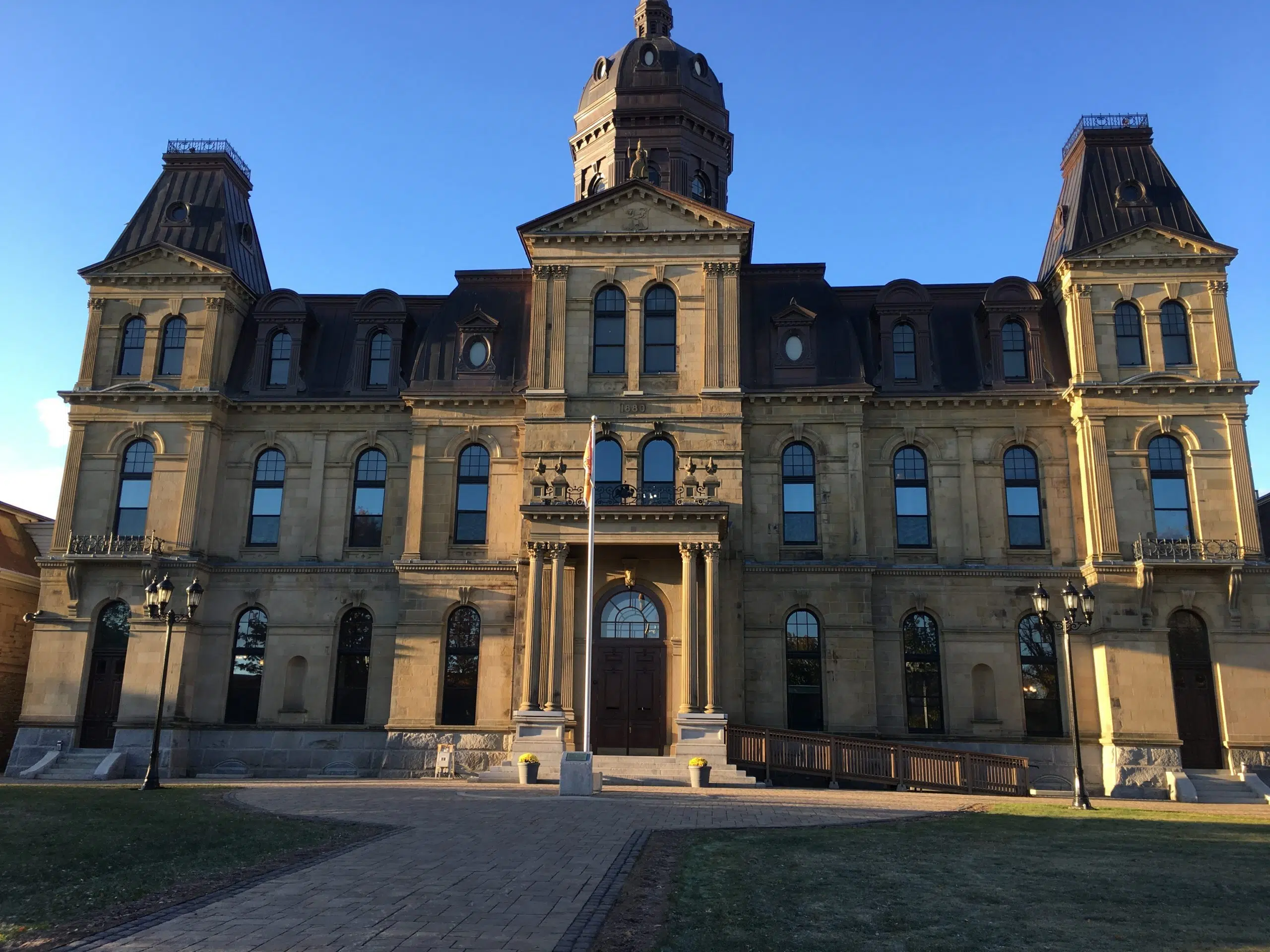
The New Brunswick legislature in Fredericton. (Image: Brad Perry)
The New Brunswick government says it will not be renewing tax-sharing agreements with First Nation communities.
Premier Blaine Higgs made the announcement Tuesday, calling the existing agreements “unsustainable and unfair.”
The agreements allow First Nation communities to keep a percentage of the provincial tax revenues they collect on-reserve through the sale of tobacco, gasoline and other fuels.
Currently, the communities keep 95 per cent of the first $8 million in provincial tax revenues and 70 per cent on amounts above that.
Higgs said about $44 million will be refunded to First Nations this year and that number is projected to reach $75 million in 2031-32.
“Our existing arrangement is clearly unsustainable,” Higgs said in a news release. “These agreements do not adhere to our basic principles of taxation. In Canada, we believe that we all pay into programs that we all benefit from, like health, education and other social support services.”
Higgs and Aboriginal Affairs Minister Arlene Dunn said they have invited First Nation chiefs to co-create a “modern and sustainable economic partnership.”
“We are excited about the potential to work with First Nation communities on projects that will see the whole province rise, and together, we will build important long-term financial security and sustainability for our province,” Dunn said in the statement.
Court Sides With First Nations On Carbon Tax Revenues
The announcement comes just weeks after a New Brunswick court sided with the Wolastoqey First Nations in their battle for a share of carbon tax revenues.
A Court of Queen’s Bench justice ruled on March 19 that the province must share carbon tax revenues collected and remitted by on-reserve retailers.
When the province adopted its carbon tax in 2020, it lowered the existing tax rates on gasoline and other fuels, leading to an estimated $4.65 million to $4.85 million reduction in revenue for the First Nations.
Lawyers for the province insisted that they are not required to share carbon tax revenues under the agreements.
But in a 61-page decision, Justice Richard Petrie sided with the First Nations, who argued the agreements require the province to share “all tax revenues” including that of the carbon tax.
Ending Tax Agreements ‘Unfair And Offensive’: Wolastoqey Chiefs
A joint statement from New Brunswick’s six Wolastoqey Chiefs describes the decision as a “crushing attack on the economic viability of First Nations in New Brunswick.”
“The decision to tear up these tax agreements is unfair and offensive when the Premier has yet to show First Nations any morsel of fairness throughout his tenure as the leader of this province,” said Madawaska Chief Patricia Bernard.
According to the statement, there is a “substantial ongoing and systemic gap” in per capita funding the federal and provincial governments provide for education and social services on First Nations reserves compared to funding off-reserve for similar services.
The tax agreements, said the statement, take a critical role in reducing that gap.
“These tax agreements were put in place in 1994 and create revenue for the province while levelling the playing field for gas and tobacco retailers,” Bernard said.
Bernard said it’s false that the agreements cost the province money when the amount transferred to First Nations is less than the amount on-reserve retailers remit to the government.
“The fact that the Premier made a point to suggest that First Nations don’t pay taxes and but access the same programs as the rest of the province and perpetuate this racist stereotype is frightening,” Bernard said.
“It is well documented that First Nations aren’t able to access health, education or other social support on a level equal to non-Indigenous Canadians.”
With files from Stephanie Sirois and Brad Perry.






